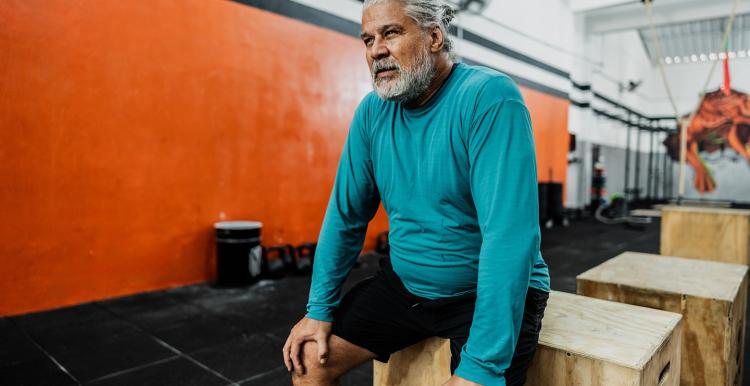Conversations with GPs can give patients with health conditions confidence to increase physical exercise

If I knew more about my condition and how to better manage it, this would help me be more active without worries about how I may worsen my physical state unintentionally.
We work with a range of local organisations supporting communities experiencing health inequalities. As the Diverse Communities Health Voice partnership, we work together to gather insight from residents.
This year, we've been talking to people living with long-term conditions about their patterns of physical activity and how this was affected by their health. We spoke to over 500 residents managing health conditions and heard that they were often unsure of the appropriateness of different types of activity and would value more direction from health professionals. We also approached our research partners for their views on the topic.
The importance of receiving approval from a health professional before increasing physical activity and movement
One partner shared an example of one of their clients with stents (stents are small metal tubes inserted into the coronary artery in a treatment that helps improve the blood supply to the heart). The client was regularly attending a badminton group for men aged 55 and over. However, he didn’t participate in the physical activity because he worried his stents would fall out or move. He sat around and at least benefited from the social interaction but refused to play, despite the group leader saying he had stents himself and was happily and safely taking part in the sport. The partner organisation advised their client to go back to their GP or speak to another health professional about his worries so that he could also benefit from the physical activity.
What about online information?
Feedback from partners was that, when you access information online, there are many websites to look at and it is not necessarily clear which websites are the trusted ones. This can be very confusing, particularly if English is not your first language.
The difficulty residents experience accessing information online (the NHS website, for example) varies from one community to another. For example, many people supported by Islington Somali Community cannot access the internet due to a range of barriers and, when they can, they find that the language is not very accessible (the terminology used is medical and not easy to understand).
In terms of other feedback on the NHS website, partners felt that the information available here is often too concise. Residents would like more detailed and more extensive information about specific conditions.
Patients need to be given information in the right way and at the right time
Good quality information empowers residents with long-term conditions to take charge of their health. Feedback indicated that, as part of their annual review, patients wanted more information from health professionals about managing their conditions and safely increasing their activity levels. Placing information online and inviting patients to go and look at it was not seen as an effective solution.
If health professionals gave this information to patients at the time of the review the messages would have more power (feedback from residents made it clear that there was a lot of respect for the knowledge of the GP). It would also allow the patient to ask questions to check their understanding. Ideally, printed information would be given to the patient at the same time, so they have something they can refer to later to refresh their memory of the conversation.
“When there is a leaflet in your hand after you come out of the appointment, you are more likely to act on it or follow up than if you have to go on the internet to find out information for yourself.”
Find out more
Read our full report 'Islington patients managing long-term conditions give feedback on their annual health checks and patterns of physical activity'.


